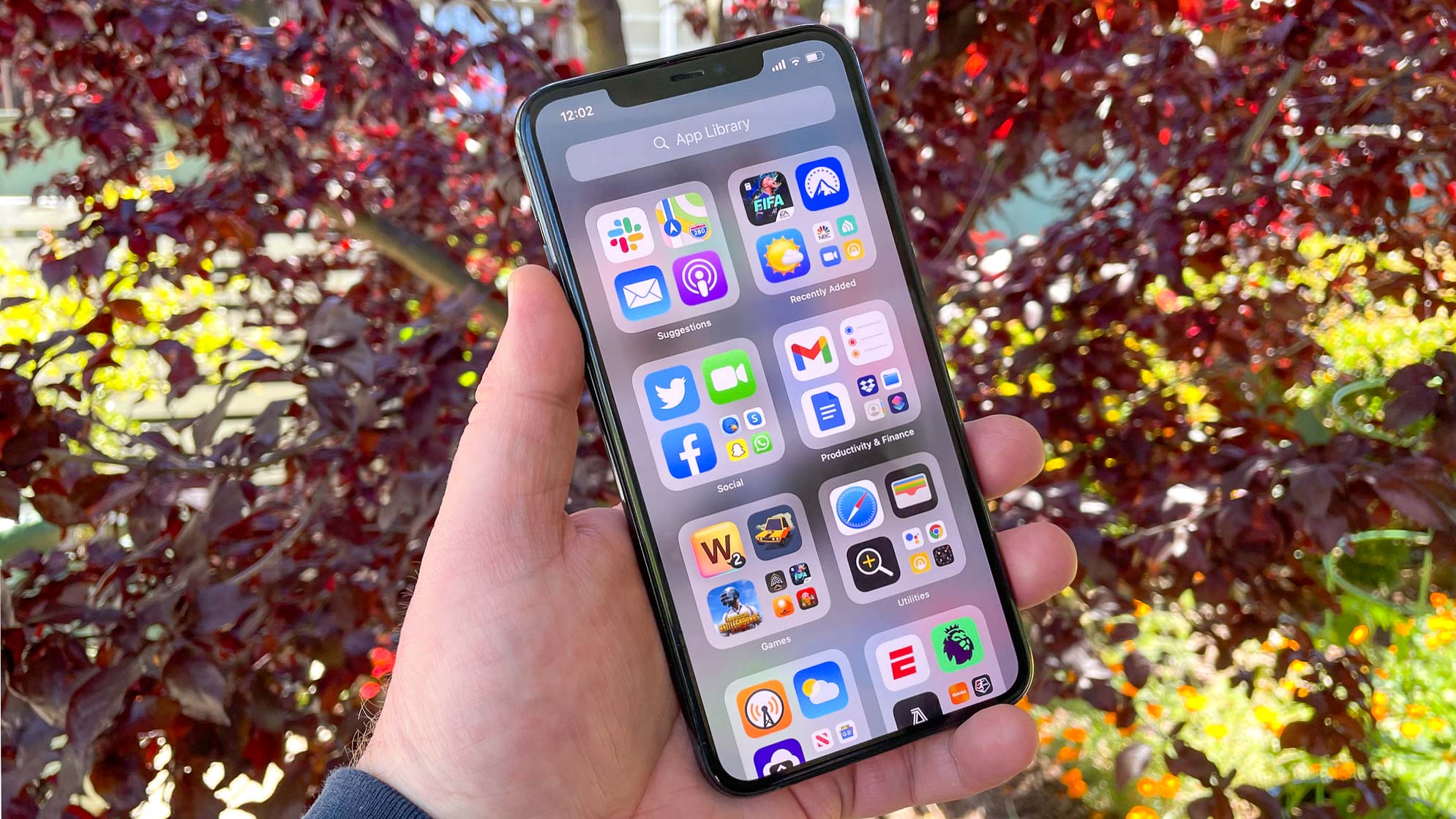Update your iPhone to iOS 14.6 now — Apple issues urgent security fix
iPhones, iPads, Macs all get crucial Apple security updates

Here at Tom’s Guide our expert editors are committed to bringing you the best news, reviews and guides to help you stay informed and ahead of the curve!
You are now subscribed
Your newsletter sign-up was successful
Want to add more newsletters?

Daily (Mon-Sun)
Tom's Guide Daily
Sign up to get the latest updates on all of your favorite content! From cutting-edge tech news and the hottest streaming buzz to unbeatable deals on the best products and in-depth reviews, we’ve got you covered.

Weekly on Thursday
Tom's AI Guide
Be AI savvy with your weekly newsletter summing up all the biggest AI news you need to know. Plus, analysis from our AI editor and tips on how to use the latest AI tools!

Weekly on Friday
Tom's iGuide
Unlock the vast world of Apple news straight to your inbox. With coverage on everything from exciting product launches to essential software updates, this is your go-to source for the latest updates on all the best Apple content.

Weekly on Monday
Tom's Streaming Guide
Our weekly newsletter is expertly crafted to immerse you in the world of streaming. Stay updated on the latest releases and our top recommendations across your favorite streaming platforms.
Join the club
Get full access to premium articles, exclusive features and a growing list of member rewards.
Apple yesterday (May 24) officially rolled out iOS 14.6 and macOS Big Sur 11.4 to its users in a wide-ranging update that spans new support for Apple Card Family, updates to AirTags and major fixes for a mind-boggling number of security issues — several of which teeter on the "very serious" side of things.
iOS 14.5 arrived last month with a slew of high-profile features, which aimed to change how we use our phones. With iOS 14.6, you'd be quickly forgiven for losing track of Apple's updates, which seem endless at the moment. That said, you'll definitely want to get your smartphone updated to iOS 14.6 given the security issues we've rounded up below.
- The latest iOS 15 rumors
- Everything we know about iPhone 13
- Plus: Google Pixel 6 release date, price, Whitechapel chip, specs and leaks
The real nitty-gritty of iOS 14.6 is in its plethora of security fixes that address a number of substantial vulnerabilities. These range from malicious audio files that can be exploited by bad actors to reveal sensitive personal info to glaring weaknesses in iOS' Core Services that provide an entry point for malware.
Here's all you need to know about this latest round of security threats to macOS and iOS devices, and exactly why you need to get your iPhone, iPad and Mac updated as quickly as you can.
How to update to iOS 14.6 now
To update your iPhone's software to iOS 14.6, head to Settings and select General. Next, tap Software Update. From here, you should be able to update to iOS 14.6. The download is approximately 577 MB, so it should not take that long over Wi-Fi.
macOS Big Sur 11.4 security fixes
Apple counts 38 different flaws being fixed in iOS 14.6 and iPadOS 14.6, with some flaws having more than one Common Vulnerabilities and Exposures (CVE) reference number.
Some of the same flaws are fixed in macOS Big Sur 11.4, which sees 58 flaws patched by Apple's count. (MacOS 10.15 Catalina and 10.14 Mojave got patches as well.)
Get instant access to breaking news, the hottest reviews, great deals and helpful tips.
Chief amongst the security issues facing macOS is a nasty strain of malware that secretly takes screenshots of users' Macs, making the need to get your system updated even more urgent.
During research into the XCSSET malware, initially discovered back in August 2020, cybersecurity firm Jamf discovered that a macOS zero-day exploit (CVE-2021-30713) was used by XCSSET to bypass Apple's Transparency Consent and Control protections.
Abbreviated to TCC, this feature sounds the virtual alarm when an app is behaving in a way that could threaten users' privacy like, say, taking photos or logging keystrokes. In sidestepping this protection, the XCSSET malware is able to circumvent the safeguards to users' privacy.
"The exploit in question could allow an attacker to gain Full Disk Access, Screen Recording, or other permissions without requiring the user’s explicit consent," according to the Jamf researchers.
It's a pretty darn serious vulnerability, not least because it's one that could be exploited to gain unauthorized access to users' files, but because it can record video and audio direct from the victims' computers while hijacking other apps’ permissions.
The weakness has reportedly been patched in the latest version of macOS Big Sur 11.4, which was released on Monday (May 24). You can grab the latest macOS Big Sur update from the Mac App Store.
iOS 14.6: WebKit updates
Back in the limelight once again is our old friend, WebKit. WebKit is the engine behind Apple's Safari browser and is no stranger to bad press, having already been seriously scrutinized for security vulnerabilities earlier this year.
The vulnerabilities hinge on cross-site scripting attacks against iPhone users. Here, hackers can steal your internet cookies and sessions in Safari, effectively giving them an inroad for a full account hijacking. Bug hunters identified seven vulnerabilities in the browser engine, "including two that would allow arbitrary code execution," according to The Register.
iPhones and iPad could be compromised by these malicious web pages to pinch details and sensitive info. Apple lists six fixes to WebKit in iOS 14.6 to prevent these attacks, plus to stop “maliciously crafted web content" for universal cross-site scripting.
Apple's watchOS and tvOS also received security updates to fix many of the same issues.
Too little, too late?
Apple says that it is aware of reports that three macOS and tvOS zero-day vulnerabilities (CVEs 2021-30663, 30665 and 30713) "may have been actively exploited." In other words, those are "zero-day" flaws in that they're exploited by attackers before the defenders are able to deliver a fix.
However, Apple stopped short of adding any further information on who may have exploited these security holes before the fixes were rolled out. None of these three flaws seem to appear in iOS, iPadOS, watchOS or in macOS Catalina or Mojave.
The operative statement in all this is to update your iPhone, iPad, Mac, Apple Watch and Apple TV right now. We've got a robust set of updating instructions in our how to upgrade to iOS 14.6 guide if you find yourself stuck.
More: The best Mac antivirus software
Luke is a Trainee News Writer at T3 and contributor to Tom's Guide, having graduated from the DMU/Channel 4 Journalism School with an MA in Investigative Journalism. Before switching careers, he worked for Mindshare WW. When not indoors messing around with gadgets, he's a disc golf enthusiast, keen jogger, and fond of all things outdoors.
 Club Benefits
Club Benefits











